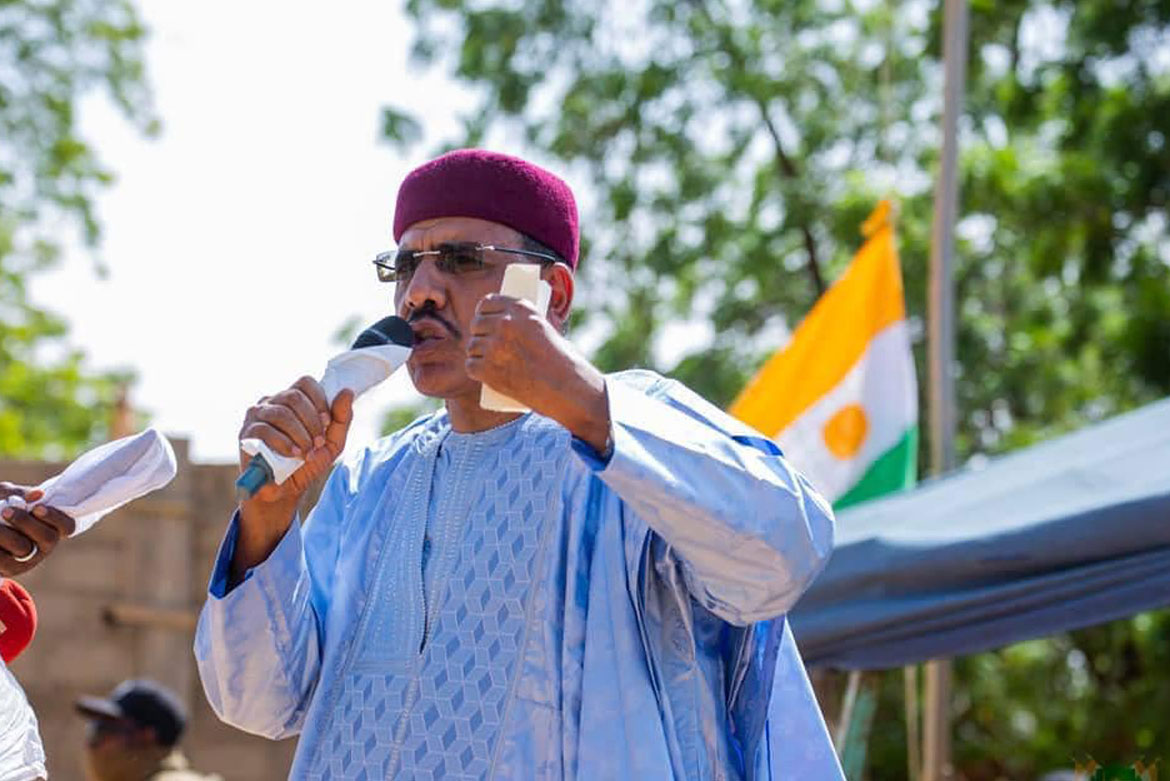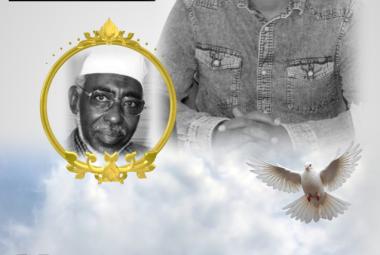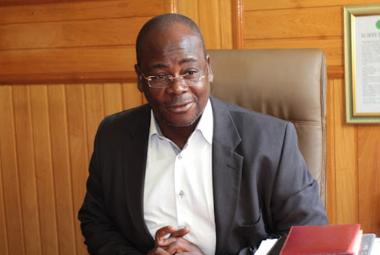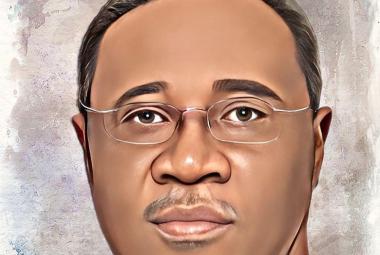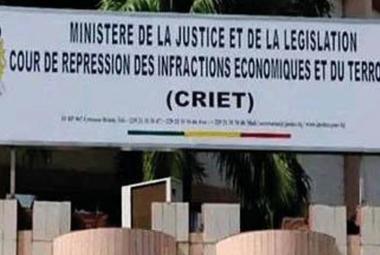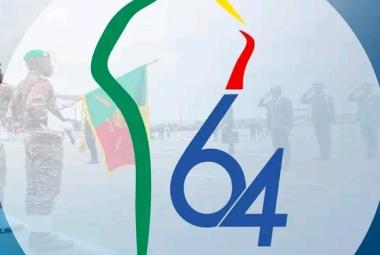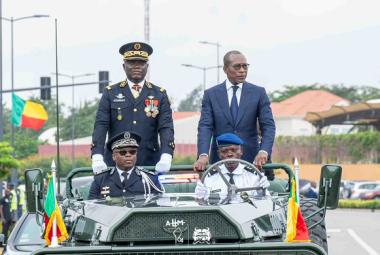The former President of Niger, Mohamed Bazoum, has just spent more than a year sequestered by the soldiers who deposed him. Not content with assuming his power, General-President Abdourahamane Tiani and his men accuse him of “plots”. Without even blinking at the ridiculousness, it is as big as the Himalayas. And the list of “plots” is long: “plot to attack the security and authority of the State, the crime of treason, the apology for terrorism and the financing of terrorism” for “the prisoner of the Democracy” in Niger.
Whether one likes it or not, the deposed President of Niger, Mohamed Bazoum, has today become the emblematic figure of the fight for Democracy in Africa. Although his detention is surrounded by deafening silence among his former peers. And Niger people as well as Africans should still ask themselves many questions for a long time by looking in the mirror of their own History.
At the BBC, Moussa Coulibaly, the lawyer of former President Mohamed Bazoum, did not beat around the bush, to remind everyone that a year ago, Democracy was assassinated in Niger. But he also hit out at all those who have looked away from Niger or those who are deaf to what is happening there and in particular concerning the fate of Mohamed Bazoum. “He will be tried by a special court that will be neither independent nor impartial and he faces the death penalty by shooting if found guilty. We can safely say that there is no longer any rule of law in Niger,” he declared, speaking of the simulacrum of justice orchestrated by the military in power against former President Mohamed. Bazoum.
Even if many seem to have forgotten him, ex-President Mohamed Bazoum, expiatory victim of the military's inability to overcome the terrorism raging in the country, is undoubtedly a Prisoner of Democracy in Niger. General Abdourahamane Tiani, who assumed Power and his men will never succeed in having another version written in the annals of African History than that of one of the worst ways of seizing Power. Worse than during a classic coup d'Etat, it was more of a hostage-taking, to put it bluntly by name, not only of the President of the Republic at the time, but also of his entire family. And what about the honor of the military in taking on board, in their desire to blackmail to preserve Power, civilians from a family which clearly has nothing to do with the function of President of the Republic and Head of the State intimately associated with the person of Mohamed Bazoum.
Long after the sequestration on July 26, 2023 of Mohamed Bazoum and his family which turned into the coup d'Etat, the son Salem Mohamed Bazoum taken hostage at the same time as the First Lady, Khadija Bazoum, was released in January 2024. After many negotiations of which President Faure Gnassingbé of Togo alone holds the secrets as appointed Mediator of the putschist military of Mali and Burkina and Niger.
West Africa, the whole of Africa, and the whole world cannot forget from now on the most famous “Prisoner of Democracy” in Africa and who is the hostage of a military Power of General Abdourahamane Tiani in Niger. Because that’s exactly what it’s about. It is the Hospital which mocks Charity that those who wrested the Sovereignty of the people of Niger of which the ex-President Mohamed Bazoum was the legal and legitimate depository are those who ultimately accuse him of "Conspiracy ". Namely “plot to attack the security and authority of the State, crime of treason, apology for terrorism and financing of terrorism” and so on...
Had it not been for the obvious cowardice within Niger, the cowardice within the Economic Community of West African States (ECOWAS) and the cowardice at the level of the African Union (AU), nothing none of this would have been possible. Amounts of cowardice which fundamentally call into question the learning and consolidation of democracy not only in Niger but throughout West Africa, and by way of contagion throughout Africa. Instead of the rule of law, we are seeing the emergence of military or military-civilian dictatorships here and there, supported implicitly or not by Russia, China, Iran and Turkey. All things which quite simply annihilate the efforts of African people to establish the rule of law and respect for individual and collective freedoms in their daily lives. These autocratic Powers which are currently being distinguished by numerous abuses, disappearances of citizens and other arbitrary arrests are, in fact, beginning to show their true faces. The time of disillusionment has come for all those who blissfully believed in the revolutionary and anti-West antiphon. Or other slogans in the name of national sovereignty and the liberation of neo-colonial France that they chanted without even thinking.
Beyond the passivity and even the powerlessness of sub-regional and continental institutions on the advent of the military to Power with its procession of misfortunes, it is also appropriate to point out the inorganization of Civil Society in West Africa. Which should be taken up, not only when it is necessary at the national level but also concerning all ECOWAS countries, since it concerns all actions contrary to Democracy and the rule of law, and this by duty of solidarity and unity in combat. For democratic values to take resolute root in each country in West Africa in particular and in Africa in general, the African people will not be able to do without a strong, united and united civil society even beyond national borders on what should be called a “Common Democratic Minimum”. Because, contrary to what some would have African people believe, Democracy is not imported from the West or even less a luxury for Africa. It was indeed born in Africa just like the first political Confederation in the History of Humanity. On the other hand, what was born in the West, and more precisely in Greece, is the voting method which has become widespread throughout the world. And the nuance is important for all those who would like to impose Dictatorships on African people.
By Serge Félix N’Piénikoua



